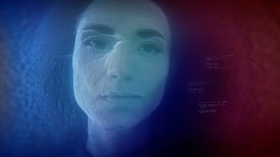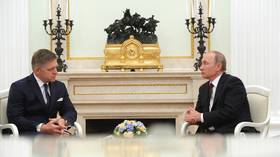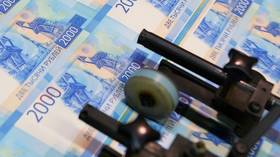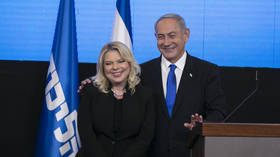US authority rules AI can’t copyright art
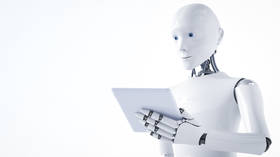
The US Copyright Office has denied the AI algorithm Creativity Machine the copyright over an image it supposedly generated with “extremely minimal” human intervention. The three-person board confirmed a 2019 ruling against the algorithm last week, citing the lack of “human authorship” as the primary reason for its decision.
Algorithm owner Stephen Thaler’s efforts to copyright the image, titled ‘A Recent Entrance to Paradise’, on behalf of Creativity Machine ran aground on the absence of a “nexus between the human mind and creative expression,” according to the copyright board. The officials pointed out that, under existing copyright statutes “a work must be created by a human being,” and a US court precedent has tended to decline assigning such rights to animals, divine beings, or other entities incapable of entering into a legal contract.
A 1997 decision argued against granting the copyright for a book of so-called divine revelations to the being supposedly responsible for them, but hinted it would grant such protection if human involvement in the arrangement and curation of the ‘revelations’ was shown, suggesting Thaler could easily gain the copyright for the artwork if he claimed a human role in the image’s generation.
However, Thaler made it clear that assigning the copyright to the AI was the point of the whole endeavor, arguing that machine-created works could receive copyright protection, just as he had previously argued that an AI could patent an invention – an argument which was lost.
The copyright board confirmed the reasons for its decision, stating “the courts have been consistent in finding that non-human expression is ineligible for copyright protection.”
Thaler retains the option of suing the copyright board, and the body’s decision acknowledged that AI authorship is essentially uncharted territory, indicating that its rejection of Creativity Machine’s “authorship” was based more on previous court decisions than the letter of existing copyright law, which was written in a deliberately “broad” manner in order to allow future legislators to extend copyright protection to forms of expression not yet extant when the law was written.
